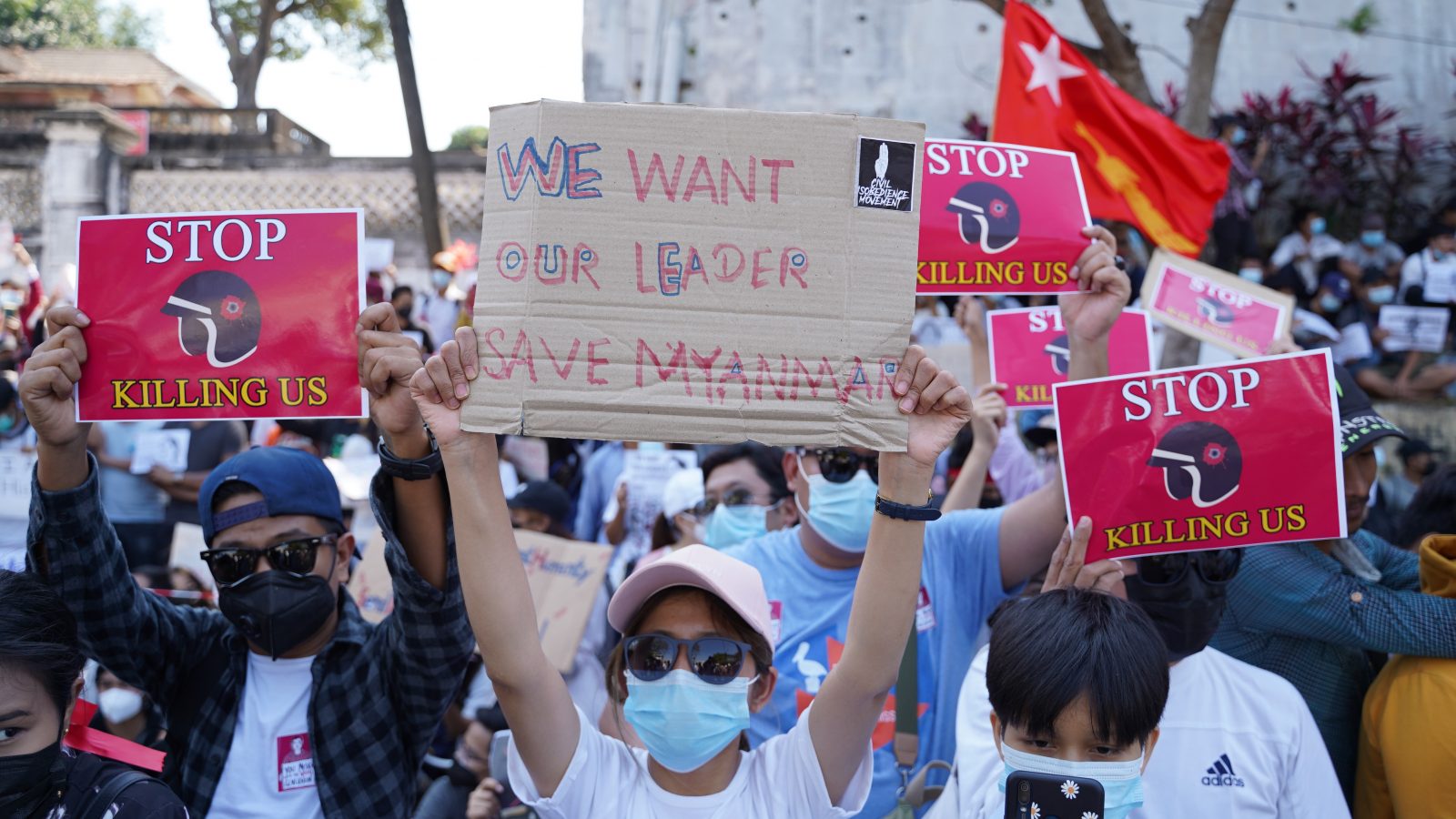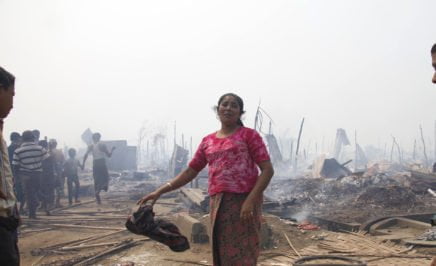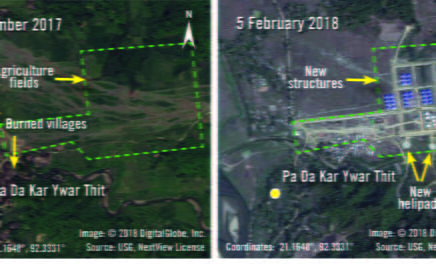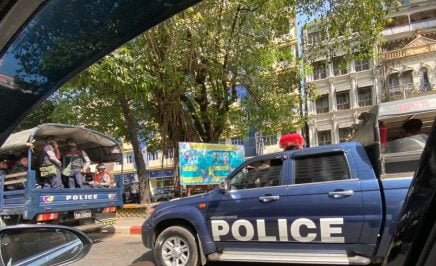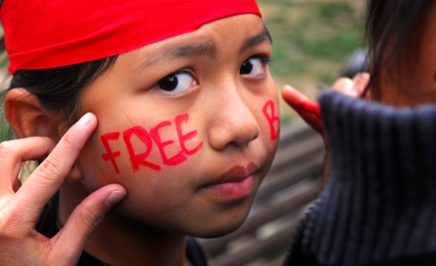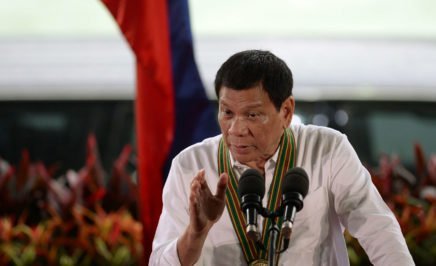The catastrophic aftermath of the Myanmar coup is the biggest test in the Association of Southeast Asian Nations’ (ASEAN) history, said Amnesty International today, calling on the regional bloc to prioritise protecting the human rights of people in Myanmar and prevent the situation deteriorating into a human rights and humanitarian crisis.
The organization is also urging the Indonesian authorities and other ASEAN member states to investigate Senior General Min Aung Hlaing on credible allegations of responsibility for crimes against humanity in Myanmar. As a state party to the UN Convention Against Torture, Indonesia has a legal obligation to prosecute or extradite a suspected perpetrator on its territory.
“The Myanmar crisis trigged by the military presents ASEAN with the biggest test in its history. The bloc’s usual commitment to non-interference is a non-starter: this is not an internal matter for Myanmar but a major human rights and humanitarian crisis which is impacting the entire region and beyond,” said Emerlynne Gil, Amnesty International’s Deputy Regional Director for Research
The crisis initiated by a murderous and unrepentant Myanmar military has engulfed the country, and will cause severe aftershocks – humanitarian and more – for the entire region, particularly if the military can continue to commit serious violations and crimes with complete impunity.
Emerlynne Gil, Amnesty International’s Deputy Regional Director for Research
“The crisis initiated by a murderous and unrepentant Myanmar military has engulfed the country, and will cause severe aftershocks – humanitarian and more – for the entire region, particularly if the military can continue to commit serious violations and crimes with complete impunity.
“Moreover, the Indonesian authorities are duty-bound to investigate Senior General Min Aung Hlaing and other Myanmar military officials who may join his delegation to Jakarta.
“The extensively documented allegations against Myanmar’s coup leader, by the UN Fact-Finding Mission on Myanmar, Amnesty International and many others, must be investigated. The Indonesian authorities and other ASEAN member states cannot ignore the fact Min Aung Hlaing is suspected of the most serious crimes of concern to the international community as a whole.”
ASEAN’s credibility on the line
In an open letter to ASEAN member states, Amnesty International highlights the fact that hundreds of people have been killed and thousands have been detained in the weeks following the 1 February military coup in Myanmar. The Myanmar military remains unmoved by the various calls from the international community and civil society organizations.
Myanmar’s economy is on its knees and expected to contract by up to 20%, while food prices increase and banking system disruptions and limited cash availability hinder humanitarian operations. The World Food Programme has warned that up to 3.4 million people in Myanmar face hunger in the next several months.
“The Myanmar military appears to be operating with the assumption of total impunity. The situation today is the direct result of a broader failure by the international community, including the ASEAN, to hold the Myanmar military to account for its past crimes.
“If not stopped, the violations committed by the Myanmar military will result in escalating violence and conflict, worsening inequality, hunger and mass displacement, including into ASEAN Member States – all amid the COVID-19 pandemic..
“Amnesty International urges the ASEAN and its Member States to work together and take immediate action to protect the people of Myanmar, prioritizing their human rights and to end impunity,” said Emerlynne Gil.
The need to end impunity
On 10 March 2021, after examining over 50 clips from the ongoing crackdown, Amnesty International found that the Myanmar military is using increasingly lethal tactics and weapons normally seen on the battlefield against peaceful protesters and bystanders across the country. Many of these killings amount to extrajudicial executions.
In a statement to the UN Human Rights Council on 11 March 2021, the UN Special Rapporteur on Myanmar, Tom Andrews, noted that the repression of peaceful protests since the coup likely meets the threshold of crimes against humanity.
In 2018, Amnesty International released a report containing extensive and credible evidence implicating Senior General Min Aung Hlaing and 12 other named individuals in crimes against humanity committed during the ethnic cleansing of the Rohingya population in northern Rakhine State. Thousands of Rohingya women, men and children were murdered – bound and summarily executed; shot and killed while running away; or burned to death inside their homes. Rohingya women and girls were raped in their villages and as they fled to Bangladesh.
Over the last few years, Amnesty International has also documented war crimes and other serious human rights violations committed by the Myanmar military against various other ethnic minorities in Rakhine, Chin, Kachin and northern Shan States.
Amnesty International continues to call on all states, including ASEAN Member States, to exercise universal and other forms of jurisdiction to investigate any person who may reasonably be suspected of committing crimes against humanity, war crimes or other crimes under international law in Myanmar. ASEAN should not shield perpetrators from accountability and must put an end to the years of impunity of the Myanmar military.
“There is sufficient evidence to reasonably suspect that Min Aung Hlaing is responsible for crimes under international law, including torture, and this needs highlighting at every opportunity,” said Emerlynne Gil.
“The deadly operations by the military since the 1 February coup only magnify the urgency of bringing Min Aung Hlaing and other suspected perpetrators to justice. The Indonesian authorities have an obligation to investigate him and must do so.”
Background
In its open letter to ASEAN and member states ahead of the emergency summit, Amnesty International calls on the following:
To the ASEAN –
- Unequivocally condemn all human rights violations in Myanmar and continue to call for the release of all individuals who are arbitrarily detained, and the end of the use of lethal force against children, peaceful protesters and bystanders.
- Direct the ASEAN Intergovernmental Commission on Human Rights (AICHR) to develop a common approach to ensure that all engagement with Myanmar takes into account and addresses human rights concerns, in accordance with the AICHR’s mandate in Section 4.11 of its Terms of Reference. This common approach shall be adopted by ASEAN and shall guide the regional body in all of its engagement in Myanmar, including in relation to the situation in Rakhine State and to repression of opposition to the military coup.
- Support the work of independent international mechanisms, the Office of the High Commissioner for Human Rights, and the UN Special Rapporteur on the situation of human rights in Myanmar to investigate human rights violations in Myanmar.
- Urge the United Nations Security Council to refer the situation in Myanmar as a whole to the International Criminal Court.
- Support the call for the UN Security Council to impose a comprehensive global arms embargo against Myanmar.
- Support the call for the UN Security Council to impose targeted financial sanctions against officials suspected of responsibility for crimes under international law and serious violations, including in the context of the repression of opposition to the 1 February coup.
To ASEAN member states –
- Refrain from returning any person to Myanmar under the current circumstances, regardless of their immigration status, and continue to halt all deportations and returns until human rights protections can be guaranteed. Returning any person under the current circumstances would constitute a breach of the principle of non-refoulement, which, as part of customary human rights law, prohibits the return of any person, irrespective of migration status, to a state where there are substantial grounds to believe they would face irreparable harm upon return due to serious human rights violations.
- Ensure that any future repatriations or returns of refugees are only conducted when safe, voluntary, and dignified, with explicit human rights protections in place, including the right to citizenship. States should provide an individual assessment for each person to evaluate needs for international protection.
- Exercise universal and other forms of jurisdiction to investigate Senior General Min Aung Hlaing for allegations of committing crimes against humanity, war crimes or other crimes under international law in Myanmar.
